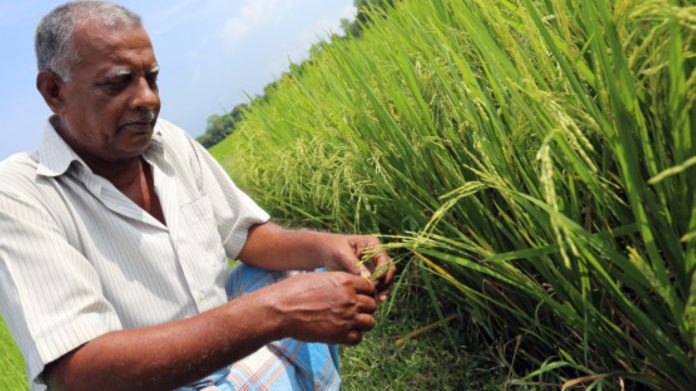Through nuclear science and technology, the IAEA is able to support Bangladesh to improve its crop yields and help ensure food security.
By Melissa Evans, Sinead Harvey
Bangladesh — a country highly vulnerable to floods, cyclones, storms and drought due to the climate crisis — faces major challenges in its agricultural sector. Over one million hectares of land in coastal areas are unfit for cultivation, due to saline soil conditions and soil degradation.
With the goal of adapting food production to climate change, the IAEA has been collaborating with Bangladesh to develop high quality, high yield crop varieties resistant to extreme conditions.
Rice is a particularly important crop in Bangladesh, but extreme weather events or outbreaks of plant disease can ruin entire harvests. Farmers urgently need new crop varieties that can be grown despite extreme conditions.
Since 1971, the IAEA and the Food and Agriculture Organization of the United Nations (FAO), through the Joint FAO/IAEA Centre of Nuclear Techniques in Food and Agriculture, have been working with Bangladesh to address agricultural challenges through training courses, fellowships, expert visits and the provision of equipment to enhance laboratory capabilities. In 2023, the IAEA and the FAO launched the Atoms4Food initiative to amplify their joint work on agriculture and help ensure food security.
For details please click here
(Courtesy: IAEA)




